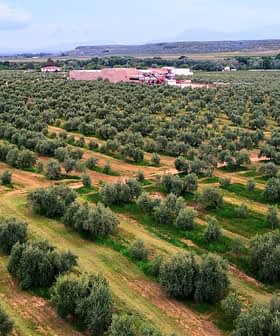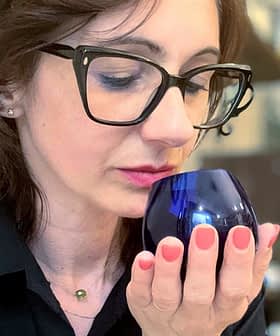Archaeologists Find Ancient Olive Press
Archaeologists in Turkey have discovered a 2,000-year-old olive oil press at the site of an ancient town run by women and dedicated to olive-oil production.
Archaeologists in Turkey have discovered a 2,000-year-old olive press in the Lyrboton Kome settlement near Antalya, founded and run by a woman named Arete, who institutionalized olive oil production. The settlement, which was a center of olive oil production in the ancient world, will be developed into an archaeological park to serve as a tourist destination, according to local officials.
Archaeologists in Turkey have uncovered a 2,000-year-old olive press, the oldest such device ever found in the Anatolia region.
The press was uncovered during an excavation of the Lyrboton Kome settlement near the southern Turkish city of Antalya.
This settlement is, in fact, a well-preserved olive oil world.
Of particular interest to the archaeologists is that Lyrboton Kome was founded and run by a woman.
Her name was Arete, which translates as “honor,” according to Nevzat Çevik, an archaeology professor at Turkey’s Akdeniz University.
“This woman was the owner of the settlement,” Çevik told reporters. “And the most important thing is that she institutionalized production by founding olive oil facilities. The ownership and control of the facilities and the settlement started with Arete and was maintained by her daughter Kille and subsequent generations. The power of this female-dominant family showed itself in settlement and production.”
According to the archaeologists, Lyrboton Kome was a center of olive oil production in the ancient world. A number of olive oil workshops have been unearthed in the ruins.
“This place has high-capacity olive oil facilities. There are at least 80 olive oil ateliers. This number will rise when the whole settlement is unearthed. We have been examining this whole region for 30 years. So many facilities have not been found before in a settlement. This settlement is, in fact, a well-preserved olive oil world,” Çevik said.
The history of Lyrboton Kome is still being studied, but much has been learned about the female-run community.
Lyrboton Kome is at least 2,000 years old and was likely founded during the Hellenistic era. But it became an olive oil trading center during the Roman era.
The village had close ties to Perge, a nearby community that was the center of a cult religion involving the ancient Greek goddess Artemis. Among the touches that Arete placed in the community was a tower dedicated to Roman Emperor Domitian, who was assassinated in 96 A.D., and Artemis.
Lyrboton Kome continued as a commercial center through the Christian era but was abandoned by the close of the 11th century.
Soon, however, Lyrboton Kome will be reborn as a tourist attraction. Plans are under way to open the community as an archaeological park once excavations are complete, according to Hakan Tütüncü, mayor of nearby Kepez.

According to Sonsoz, the site will be developed as a tourist destination through a project involving the Ministry of Culture and Tourism, Akdeniz University (AU) and Antalya Museum.
“In the coming days, this will become an archaeological park. Lyrboton Kome will serve our people and contribute to tourism and at the same time will contribute to the brand value of Antalya. It will be an important place,” said Kepez District president, Hakan Tütüncü.









